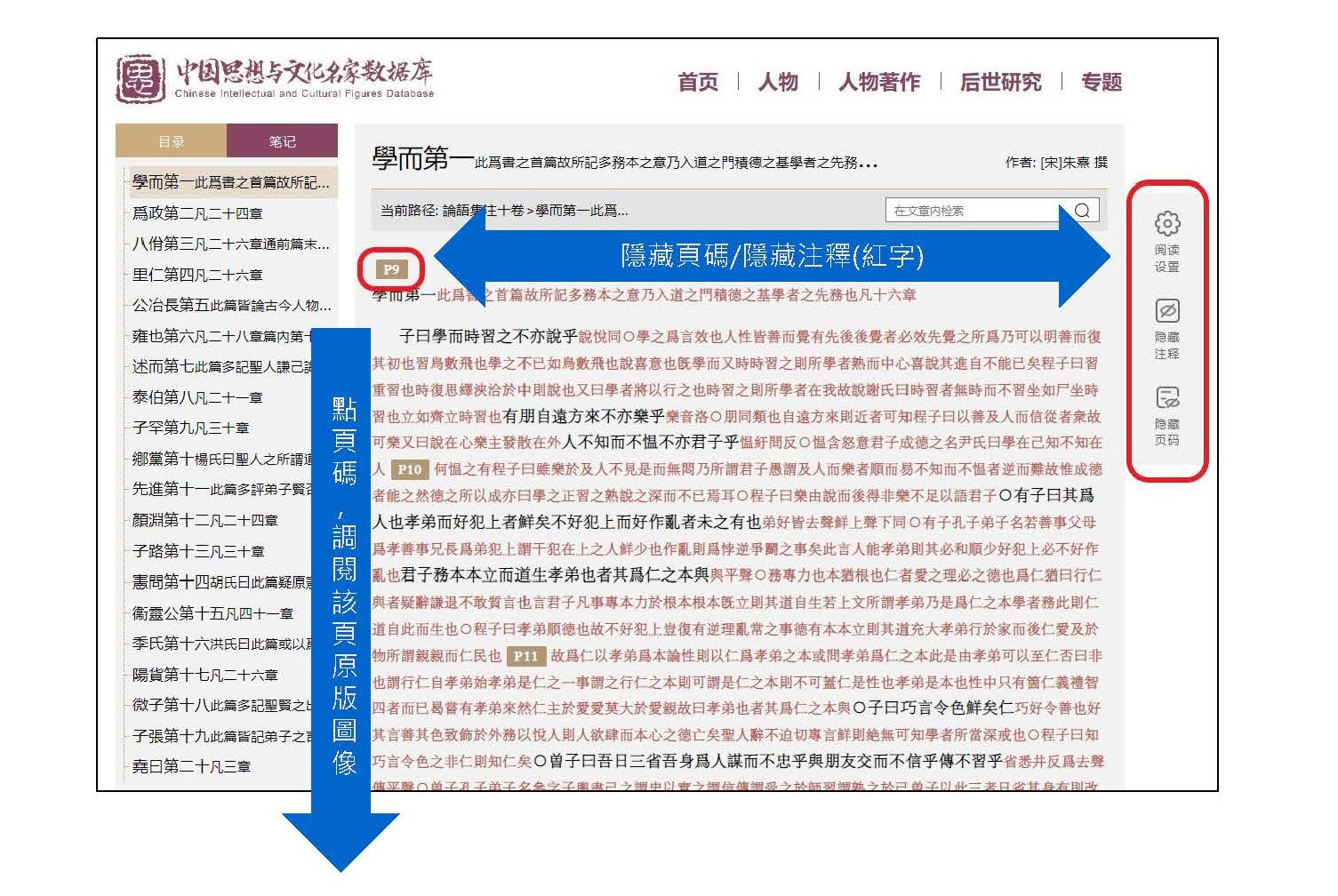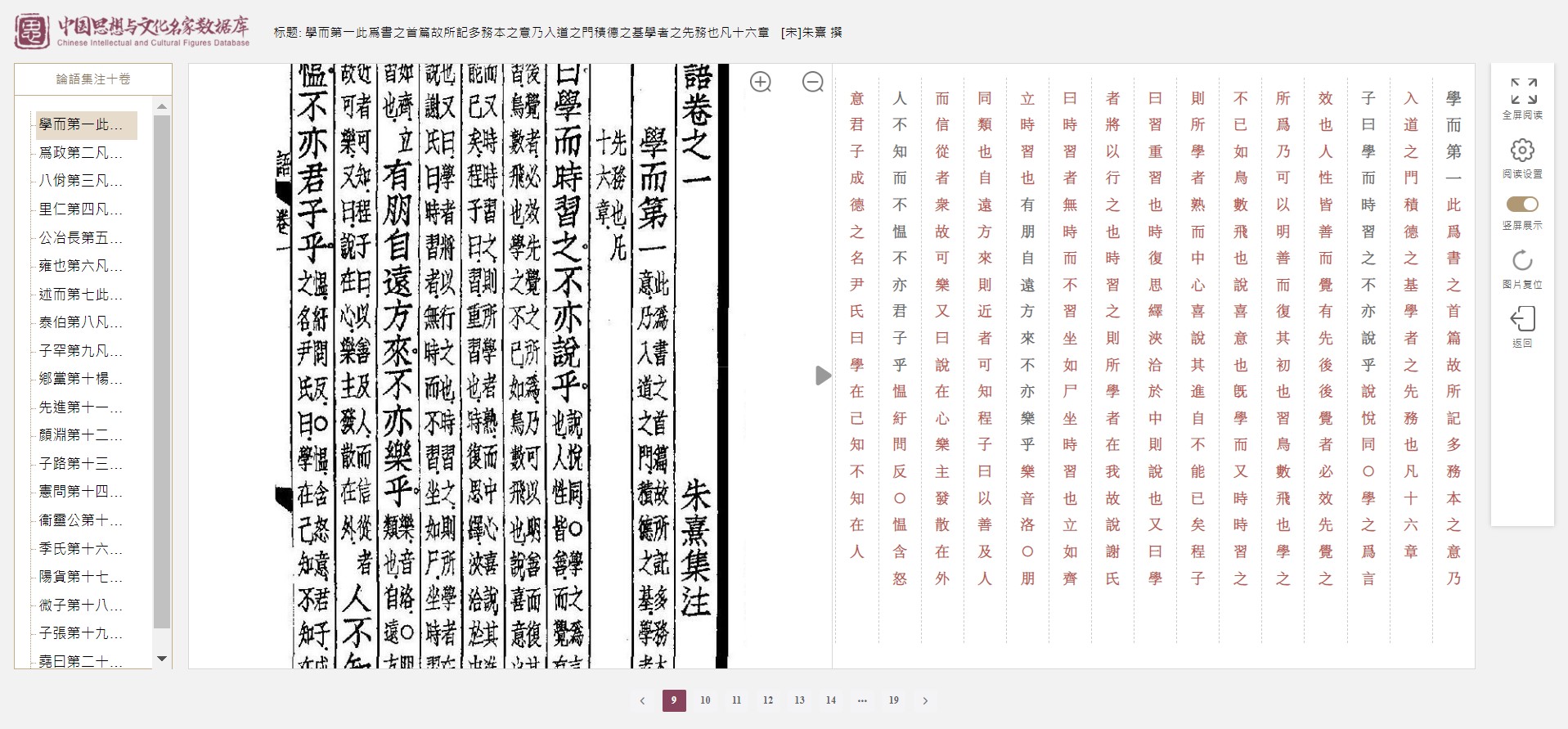Chinese Intellectual and Cultural Figures Database
The database is sorted and refined according to the threads of thoughts in all the past dynasties of China. It collects the writings, viewpoints, biographies, chronologies, handwriting, portraits, historical status, and research papers/books of representative thinkers from the pre-Qin period to modern times. A total of 335 thinkers, 1,359 kinds of books, 246,000 articles, more than 150,000 papers and 180 million words are included. Turning the grand works of thinkers for thousands of years into a knowledge bank searchable at the speed of light, the database consists of knowledge association network and intelligent recommendation of related characters/documents in addition to the encyclopedia of thinkers in the search results.
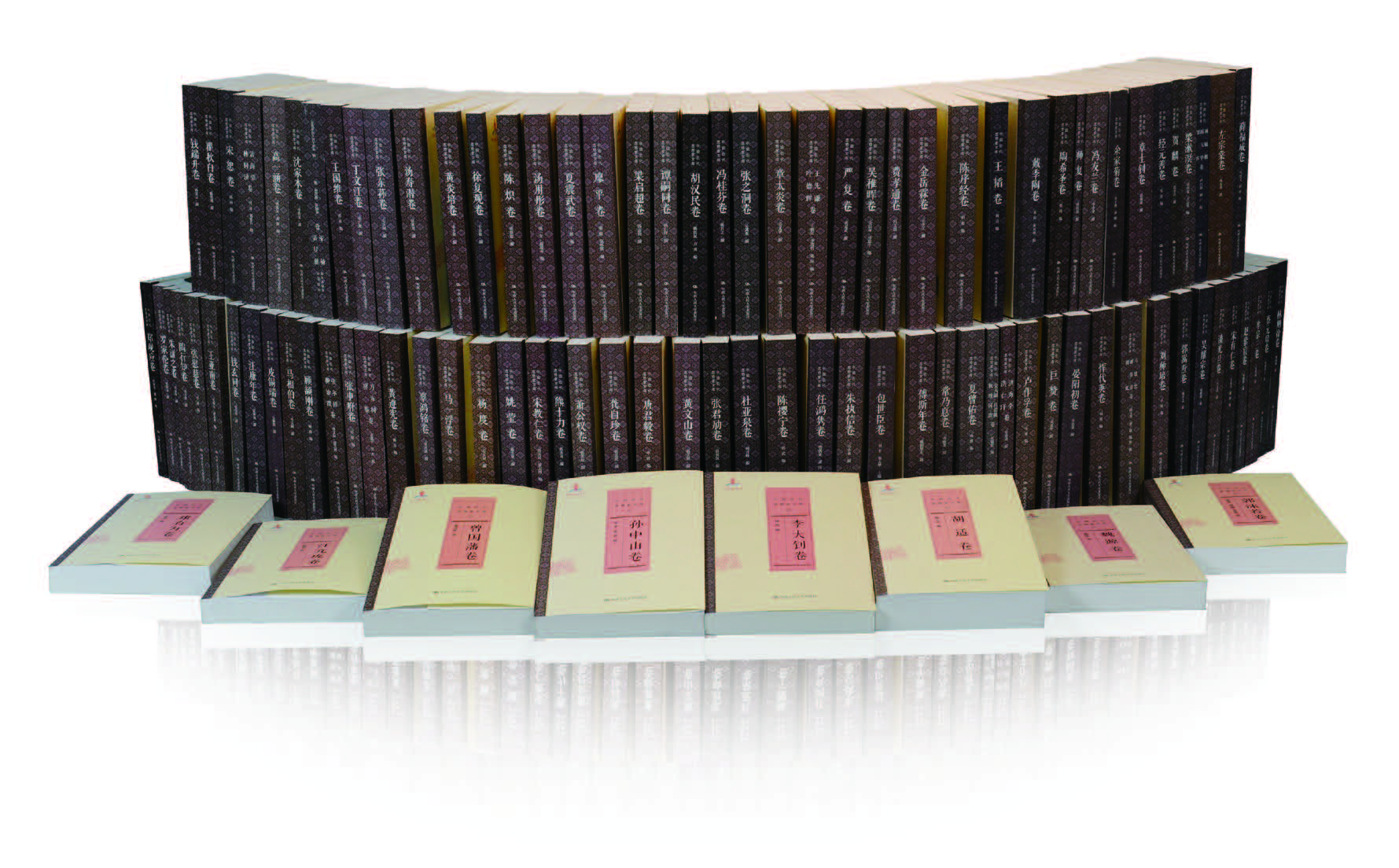
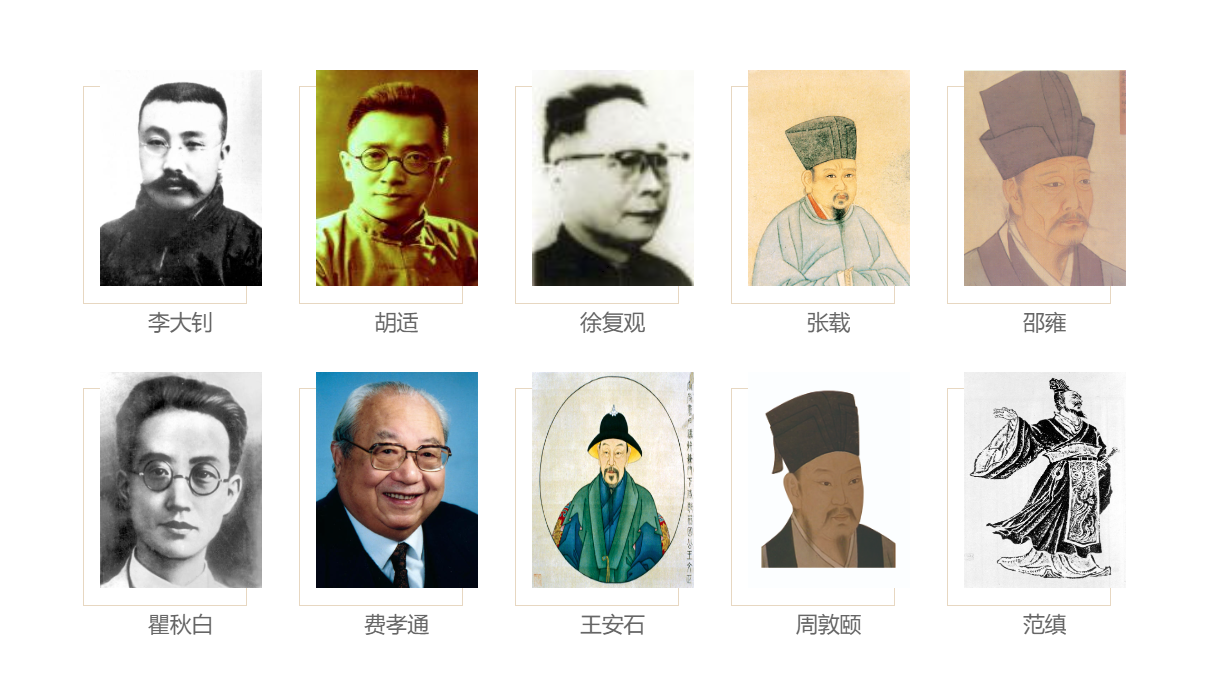
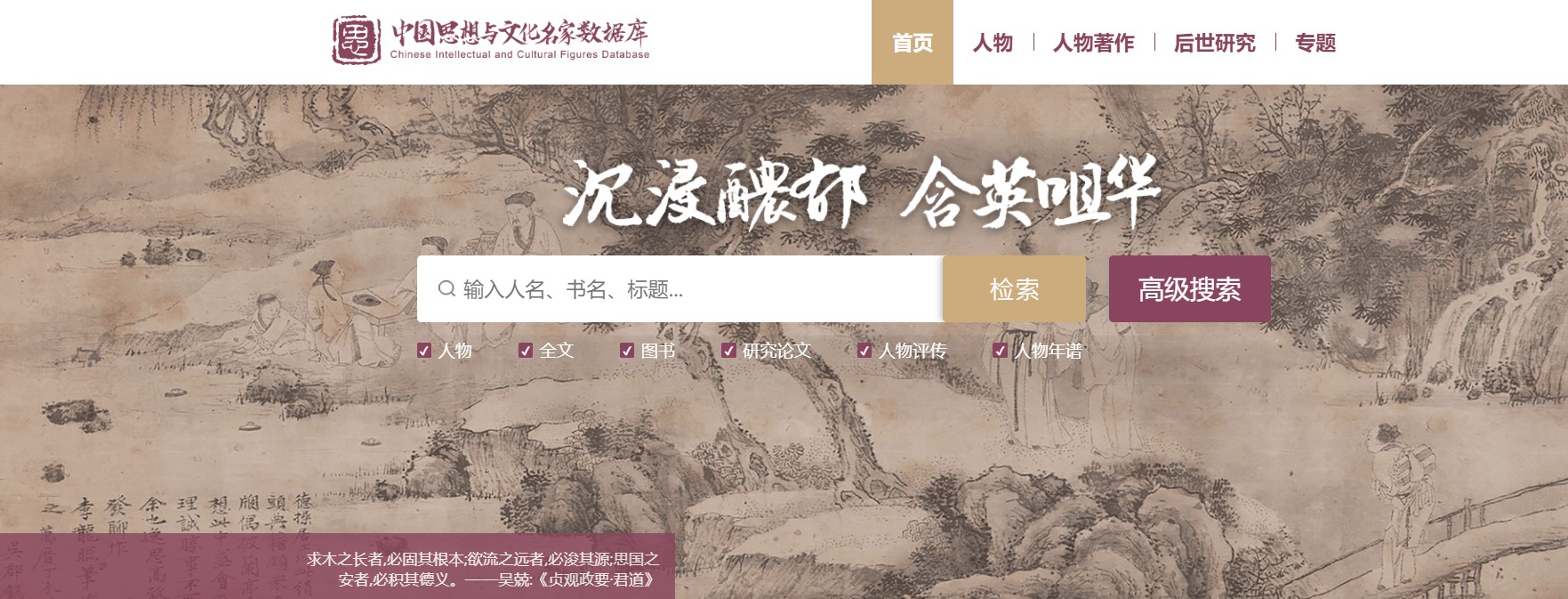
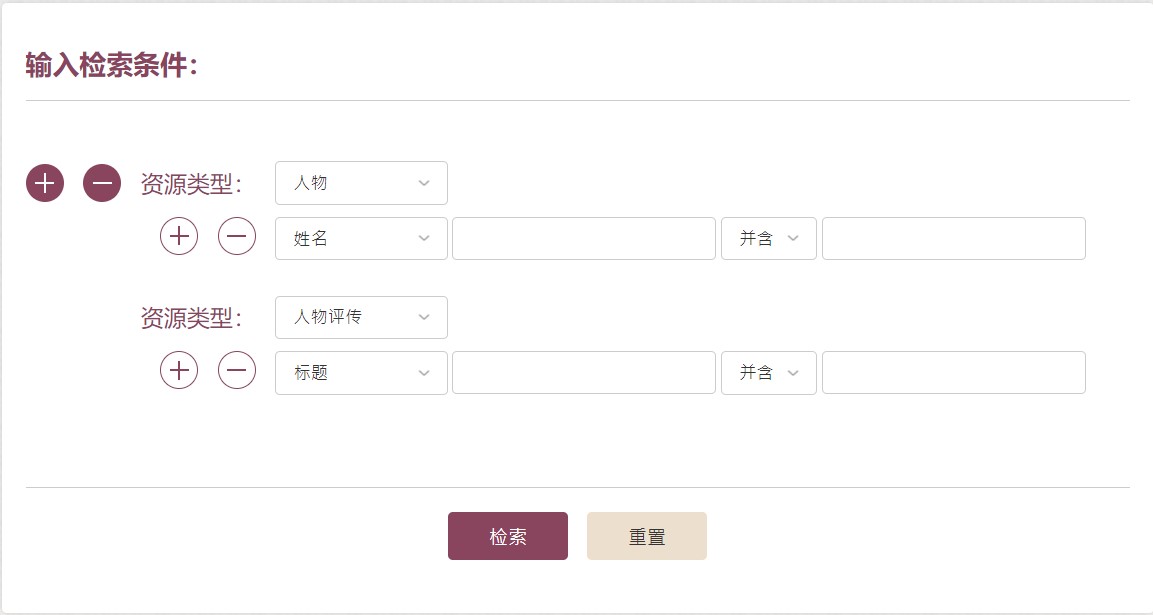
The core content of this database is the representative masterpieces of awards-winning China Renmin University Press. Such as: Modern Chinese Thinkers Library, The Complete Works of Liang Qi-Chao, The Complete Works of Kang You-Wei, Yangming Studies Series, and other classic books in addition to 818 classic ancient books , including printed editions of archives from Song Dynasty to the Republic of China. That content was selected and edited by Professor Dai Yi of China Renmin University, and Wang Junyi, editor-in-chief of China Social Sciences Press. In order to complete the database, they lead a large number of renowned sinologists with the inclusive tolerance, breaking through political taboos and ideology across the Taiwan Strait.
Covering 12 disciplines-literature, history, philosophy, art, law, politics, society, economics, military, education, science and culture, the database’s scale and high level are unprecedented. It collects many newly discovered documents and some significant thinkers’ complete works published for the first time such as: Hu Han-Min, Tao Xi-Sheng, Jiang Kang-Hu, Fang Dong-Shu, Tang Jian, etc.; Other figures are such as May 4th Movement figures, anti-May 4th Movement figures, New Confucians, and Kuomintang figures who were severely criticized by the mainland China (such as Wu Zhihui, Dai Jitao, etc.). Those figures have always been irreconcilable, but they coexist in the same database.
Among the databases of ancient Chinese books, this is the only think tank that takes Chinese thoughts and thinkers as the main axis. Combining literature and research, it can be regarded as an essential resource for the entry into the study of Chinese intellectual history.
Information
Features on Text Reading
- The text is extremely accurate, and the font is completely consistent with the original version. (Rare ancient characters are not replaced by synonyms.)
- Annotations are separated from the text in red letters. Users can choose to hide or reserve them.
- Page numbers are marked in the text, click it so to read its original page and compare it with the text.
- Simplified /Traditional Chinese conversion, adding notes, quoting text are all available.
- Text typesetting can be switched between horizontal and vertical. Font size and background color can be selected.

